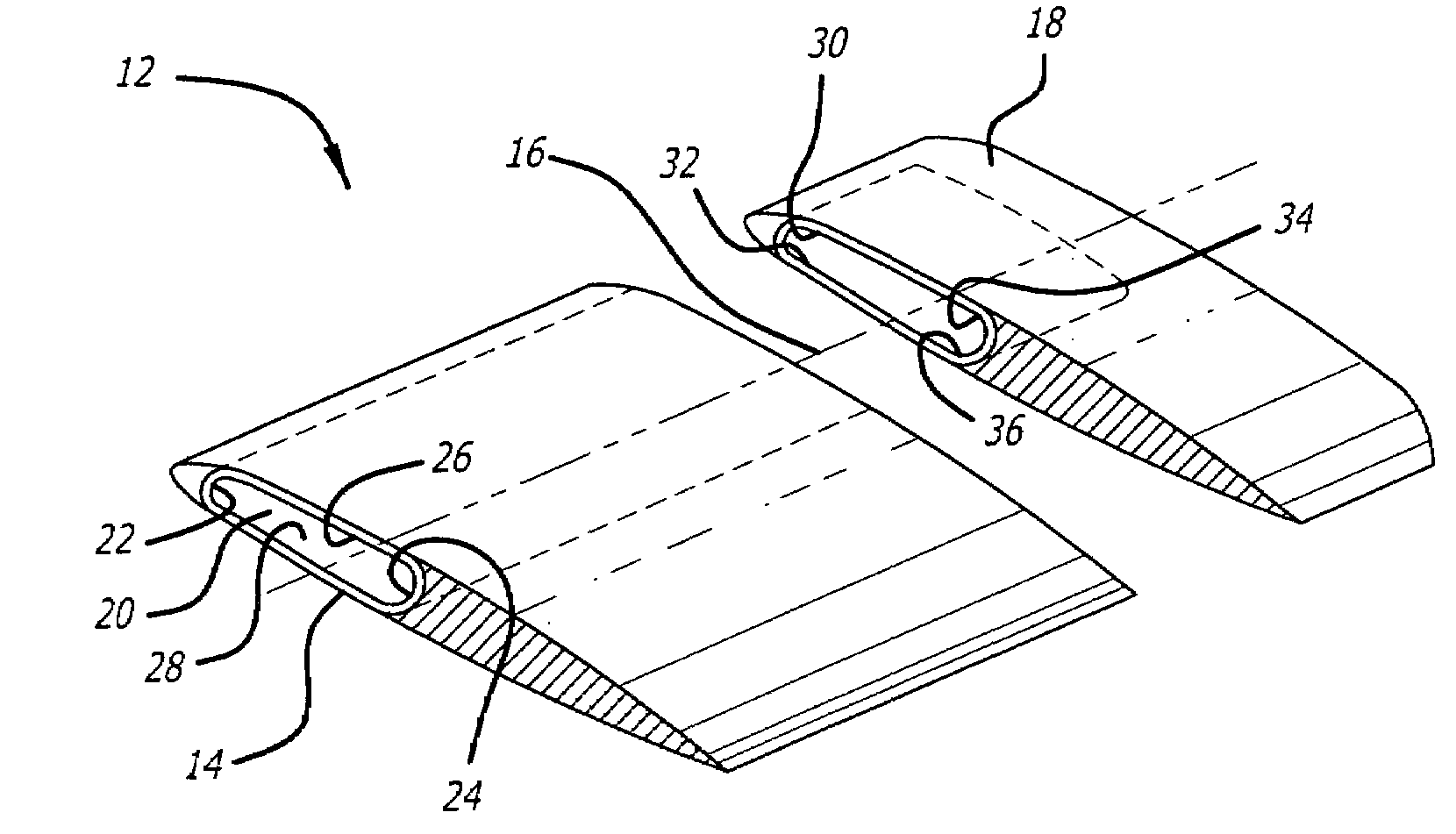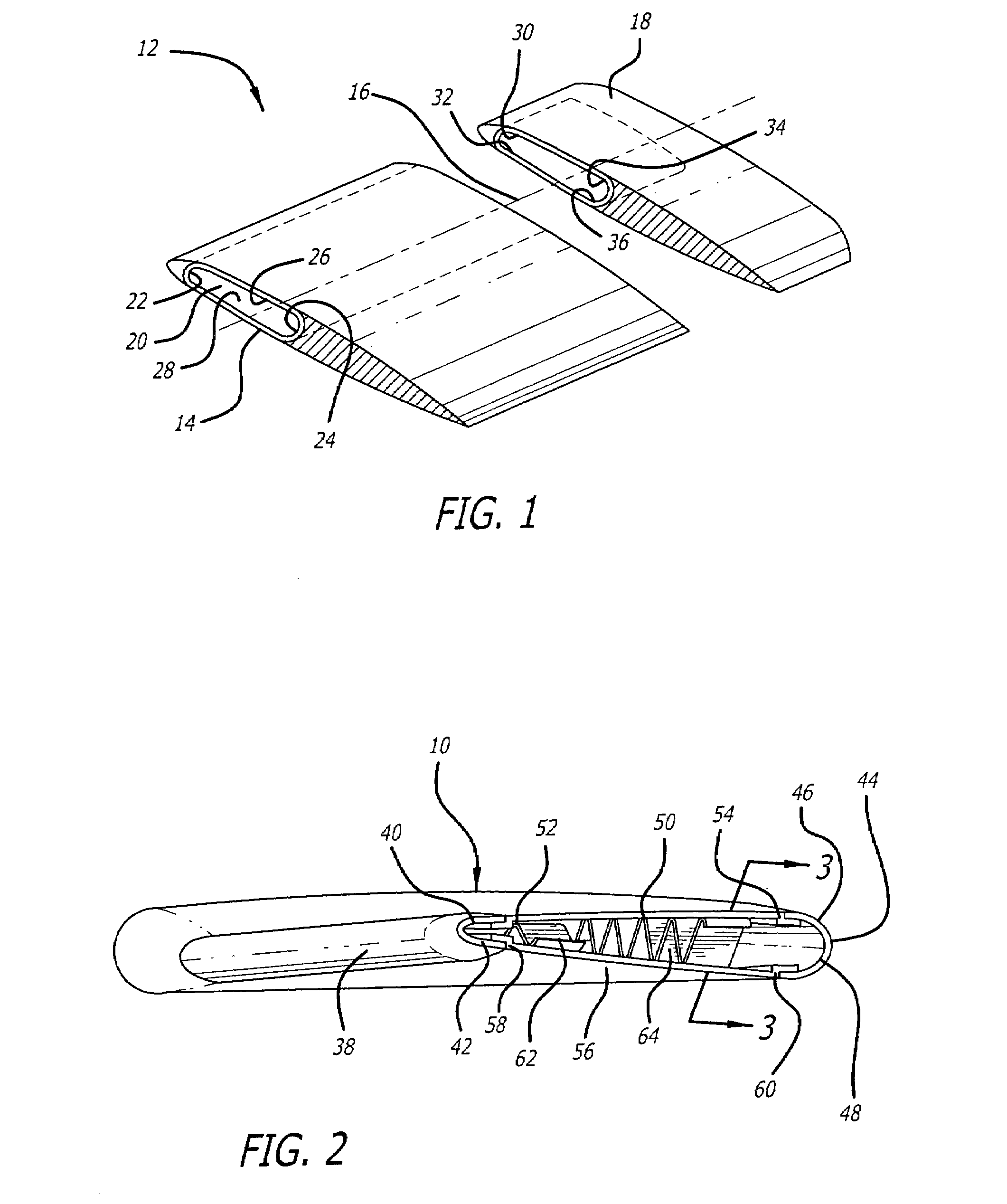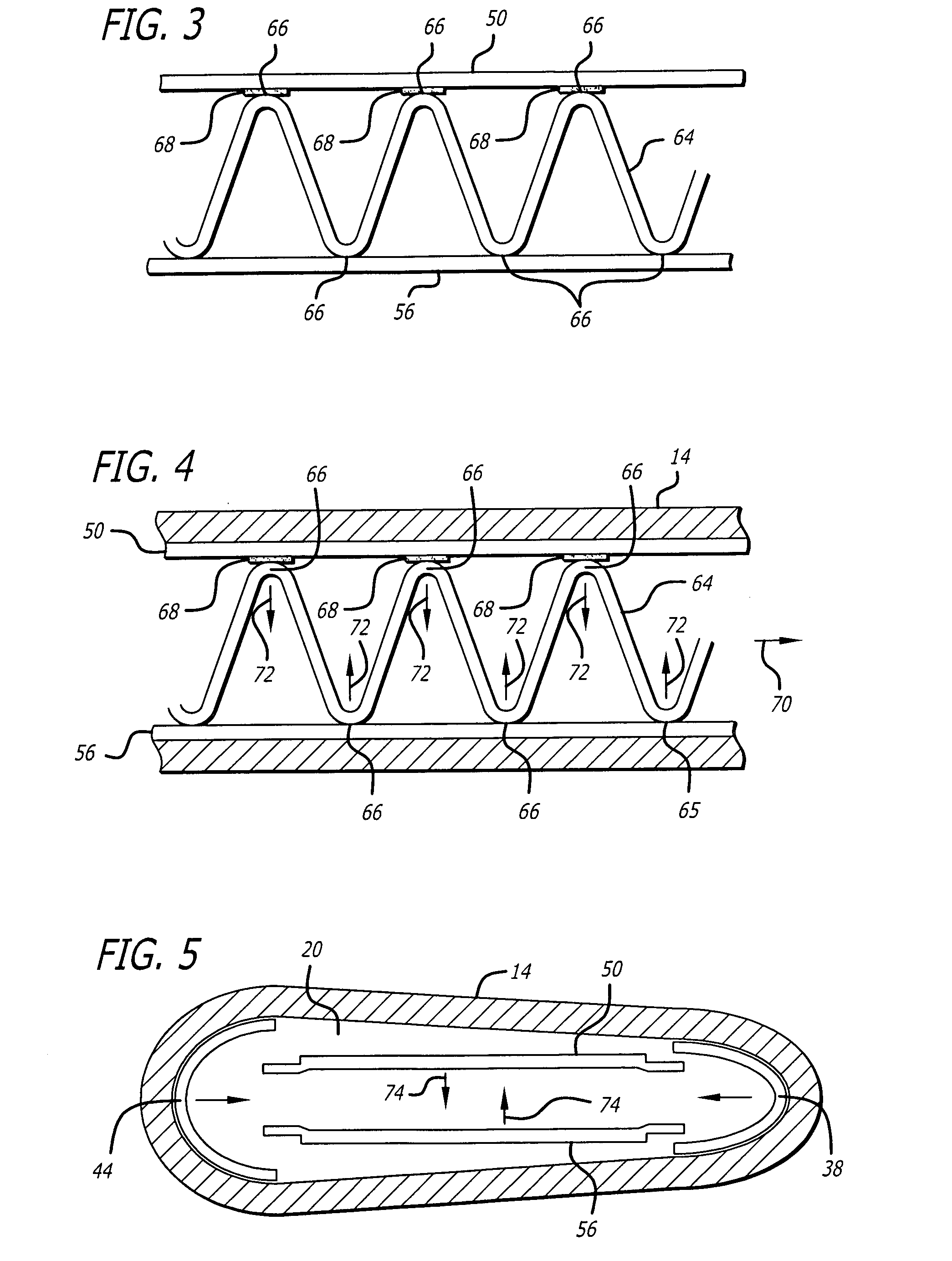Helicopter blade mandrel
a technology for helicopters and mandrels, which is applied in the field of helicopter rotor blades, can solve the problems of difficult to remove molds or mandrels after spar cure, difficult to find foam or other materials that have the structural strength to maintain critical spar dimensions, and complex set of aerodynamic forces on the rotor blades. achieve the effect of easy removal of spars
- Summary
- Abstract
- Description
- Claims
- Application Information
AI Technical Summary
Benefits of technology
Problems solved by technology
Method used
Image
Examples
Embodiment Construction
[0023]A preferred exemplary multi-component mandrel in accordance with the present invention for use in molding a helicopter rotor blade from composite material is shown generally at 10 in FIG. 2. An exemplary helicopter rotor blade that can be molded utilizing the mandrel 10 is shown in a simplified form in FIG. 1 at 12. The rotor blade 12 includes a spar 14 that extends parallel to the longitudinal axis 16 of the rotor blade 12. The spar 14 typically extends from the root of the rotor blade (not shown) to the tip 18. The spar 14 is a tubular structure that has an elliptically shaped cross-section as shown in FIG. 1. The spar 14 includes a number of interior surfaces that are formed by the mandrel 10. These interior spar surfaces define the spar cavity 20.
[0024]Referring to FIG. 1, the spar interior surfaces are composed of a leading edge surface 22, trailing edge surface 24, an upper surface 26 and a lower surface 28. The leading edge surface 22 includes an upper leading edge port...
PUM
| Property | Measurement | Unit |
|---|---|---|
| Force | aaaaa | aaaaa |
| Distance | aaaaa | aaaaa |
| Resilience | aaaaa | aaaaa |
Abstract
Description
Claims
Application Information
 Login to View More
Login to View More - R&D
- Intellectual Property
- Life Sciences
- Materials
- Tech Scout
- Unparalleled Data Quality
- Higher Quality Content
- 60% Fewer Hallucinations
Browse by: Latest US Patents, China's latest patents, Technical Efficacy Thesaurus, Application Domain, Technology Topic, Popular Technical Reports.
© 2025 PatSnap. All rights reserved.Legal|Privacy policy|Modern Slavery Act Transparency Statement|Sitemap|About US| Contact US: help@patsnap.com



